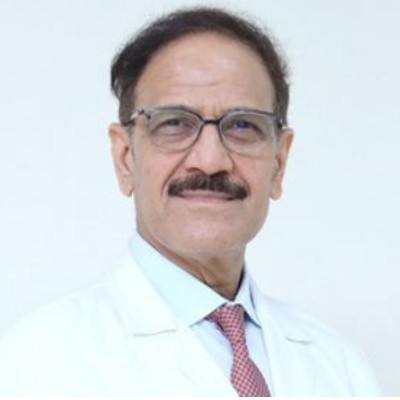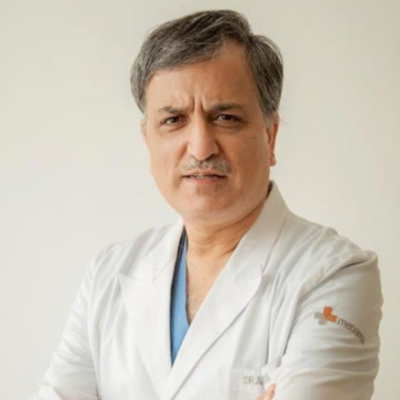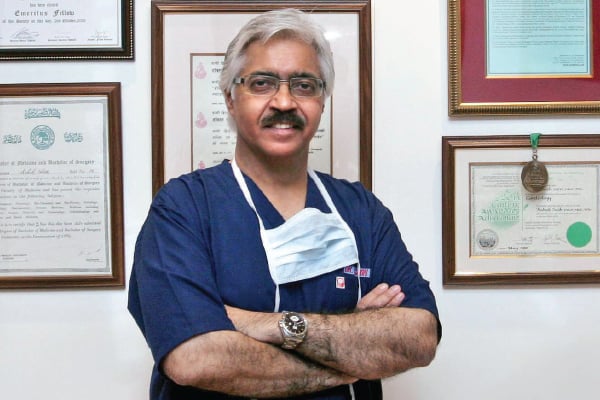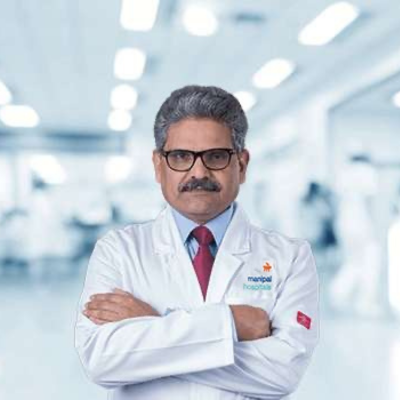Medical Visa Extension in India: How to Apply and What You Need to Know
 27 March,2025
Read More
27 March,2025
Read More
Enquire now in case of any assistance needed
Starting From: USD 4500-7500
Procedure Type: Surgical Procedure
Hospitalization Days: 5-7 Days
Procedure Duration: 3-6 Hrs
Recovery Time: 6-12 Weeks
Success Rate: 98%
Coronary Artery Bypass Surgery (CABG) is affordable in India. The cost of Coronary Artery Bypass Surgery (CABG) in India lies between USD 4500-7500. The exact procedure price depends on multiple factors such as the surgeon's experience, type of hospital, severity of the condition, patient's general condition,�etc.
Coronary Artery Bypass Grafting, commonly known as heart bypass surgery, is used to treat severe coronary artery disease (CAD). Severe coronary artery disease (CAD) means that the arteries supplying blood to the heart are significantly blocked or narrowed. This can lead to reduced blood flow to the heart, potentially causing chest pain, heart attacks, or other serious heart problems.
Heart bypass surgery works by creating a new pathway for blood to flow past blocked or narrowed arteries. This improves blood supply to the heart muscle. This procedure is primarily recommended when medications or less invasive treatments, such as angioplasty, are ineffective.
According to the World Health Organization (WHO), cardiovascular disease is one of the leading causes of death worldwide. Additionally, heart bypass surgery is among the most effective treatments for advanced cases.
Heart bypass surgery, or coronary artery bypass grafting (CABG), comes in several forms.
Heart bypass surgery is typically recommended for individuals with:
1. Severe blockages in multiple coronary arteries
2. Persistent chest pain (angina) despite medication
3. A high risk of heart attack due to blocked arteries
4. Poor heart function caused by reduced blood flow
The procedure brings a high success rate and the ability to improve quality of life significantly.
Heart bypass surgery costs in India can broadly be categorised into the following approximate ranges:
These figures generally cover routine procedures performed without complications.
Several elements can influence the cost of heart bypass surgery in India:
The following table represents the 10 major cities of India and their surgery cost division.
|
City |
Min Cost (INR) |
Max Cost (INR) |
Min Cost (USD) |
Max Cost (USD) |
|
New Delhi |
2,30,000 |
5,03,860 |
2,665 |
5,836 |
|
Mumbai |
2,40,000 |
5,30,000 |
2,780 |
6,139 |
|
Bengaluru |
3,40,000 |
5,25,000 |
3,938 |
6,081 |
|
Chennai |
1,49,474 |
224,374 |
1,731 |
2,599 |
|
Hyderabad |
230,000 |
8,50,000 |
2,665 |
9,846 |
|
Kolkata |
2,10,000 |
5,50,000 |
2,433 |
6,371 |
|
Pune |
3,30,000 |
6,00,000 |
3,823 |
6,950 |
|
Ahmedabad |
3,00,000 |
7,00,000 |
3,475 |
8,108 |
|
Chandigarh |
2,20,000 |
8,00,000 |
2,548 |
9,267 |
|
Gurugram |
2,50,000 |
9,50,000 |
2,896 |
11,004 |
The higher density of upscale hospitals across the major cities of Delhi, Mumbai, and Bengaluru governs their broader healthcare costs. The healthcare services provided in Tier-2 cities match metropolitan standards at reduced payment rates. Always consult your doctor for an exact cost evaluation.
Tourists often compare multiple destinations for the best combination of cost and expertise. Below is a generalised comparison:
|
Country |
Approx. Range (USD) |
|
India |
1,800 - 8,000 |
|
USA |
1,00,000 - 1,23,000 |
|
UK |
15,000 - 20,000 |
|
UAE |
10,000 - 32,950 |
|
Turkey |
10,000 - 15,000 |
|
Thailand |
3,500 - 6,500 |
Several overseas patients came to India for their treatment. India's balance of affordability, advanced hospital infrastructure, and highly trained specialists sets it apart.
1. Consultations & Diagnostic Tests:
2. Other Evaluations:
If you have coexisting conditions like hypertension or diabetes, additional tests may be required.
The heart bypass surgery cost in India varies depending on the hospital, surgeon's expertise, and patient's medical condition. Many leading hospitals collaborate with insurance providers to offer coverage under private health insurance, government-sponsored schemes, and international medical insurance. Patients should check with their insurance provider to understand policy coverage, including pre-authorization requirements, co-payments, and exclusions.
To ensure affordable heart bypass surgery, several hospitals in India offer financing options such as medical loans, flexible instalment plans, and tie-ups with financial institutions. Patients can also explore zero or low-interest EMI (Equated Monthly Installment) options to manage expenses efficiently. Additionally, most hospitals have dedicated insurance assistance teams to help patients navigate the claim process, making high-quality cardiac care more accessible.
Are you looking for affordable heart bypass surgery? Here are some tips you can follow to reduce the financial strain while getting the best out of your surgery:
Planning medical care abroad can be overwhelming, especially when facing a serious heart condition. The heart bypass surgery cost in India offers significant savings compared to Western countries, but navigating the process requires guidance. At Medijourney, we connect patients with India's leading cardiac specialists and renowned hospitals, managing everything from initial consultations to post-surgical recovery. Our experienced team coordinates with expert surgeons, provides transparent cost breakdowns, and handles all logistics, allowing you to focus entirely on your health rather than procedural complexities.
Beyond medical coordination, Medijourney offers comprehensive support, including visa assistance, language services through bilingual staff and interpreters, and personalised accommodation options ranging from economical to premium facilities. Our dedicated team remains available 24/7 to address any concerns, ensuring a stress-free experience throughout your medical journey.
We believe recovery should proceed smoothly with clear structure and minimal worry, empowering you to make informed, cost-effective healthcare decisions. Consider Medijourney as your trusted partner for affordable heart bypass surgery in India, where your well-being is our primary concern.
Risks include bleeding, infection, heart attack, and stroke, especially with pre-existing conditions.
On-pump uses a heart-lung machine; off-pump is performed on a beating heart.
Yes, most people can return to normal activities within a few months. However, to ensure a smooth recovery, it's important to follow a rehabilitation program and your doctor's advice.
Chairman
Interventional Cardiologist
BLK-Max Super Speciality Hospital, New Delhi
Book AppointmentChairman
Cardiothoracic and Vascular Surgeon
Medanta - The Medicity Hospital, Gurgaon
Book AppointmentConsultant
Interventional Cardiologist
Apollo Hospitals, Greams Road, Chennai
Book AppointmentChairman
Interventional Cardiologist
Fortis Escorts Heart Institute, Okhla, New Delhi
Book AppointmentChairman
Cardiothoracic and Vascular Surgeon
Manipal Hospital, Dwarka, Delhi
Book AppointmentChairman
Interventional Cardiologist
BLK-Max Super Speciality Hospital, New Delhi
Book AppointmentChairman
Cardiothoracic and Vascular Surgeon
Medanta - The Medicity Hospital, Gurgaon
Book AppointmentConsultant
Interventional Cardiologist
Apollo Hospitals, Greams Road, Chennai
Book AppointmentChairman
Interventional Cardiologist
Fortis Escorts Heart Institute, Okhla, New Delhi
Book AppointmentChairman
Cardiothoracic and Vascular Surgeon
Manipal Hospital, Dwarka, Delhi
Book AppointmentChairman
Interventional Cardiologist
BLK-Max Super Speciality Hospital, New Delhi
Book AppointmentDoctor of Pharmacy
Dr. Deepanshu Siwach is a skilled clinical pharmacist with a Doctor of Pharmacy degree.?He has 4+?years of experience and has worked with thousands of patients. He has been associated with some of the top hospitals, such as Artemis Gurgaon.
Dr. Deepanshu Siwach is a skilled clinical pharmacist with a Doctor of Pharmacy degree.?He has 4+?years of experience and has worked with thousands of patients. He has been associated with some of the top hospitals, such as Artemis Gurgaon....
Dr. Aseem Ranjan Srivastava is an experienced Pediatric Cardiothoracic Surgeon specializing in Minimal Access and Robotic Cardiac Surgery. He strongly recommends prompt corrective repair when possible....
The Art of Effective Communication
 27 March,2025
Read More
27 March,2025
Read More
 26 March,2025
Read More
26 March,2025
Read More
 22 March,2025
Read More
22 March,2025
Read More
 12 March,2025
Read More
12 March,2025
Read More
 24 January,2025
Read More
24 January,2025
Read More
 20 January,2025
Read More
20 January,2025
Read More




